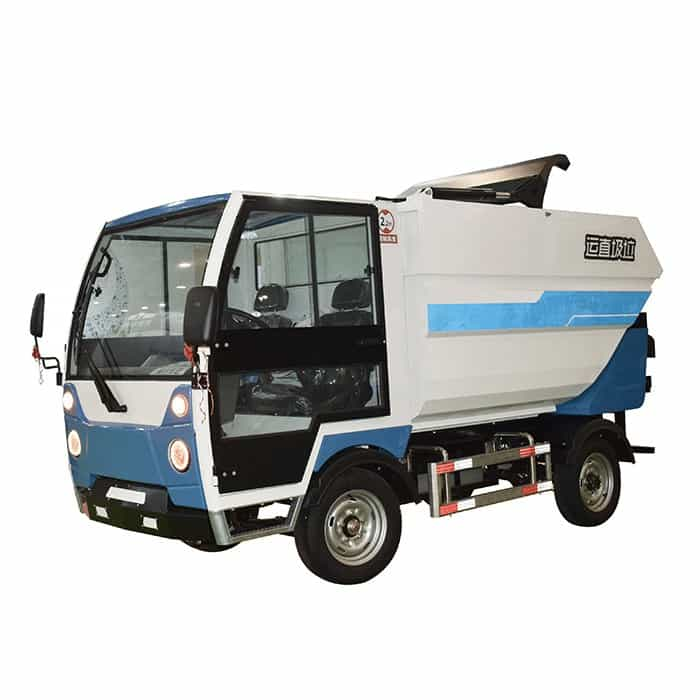Electric garbage trucks are specially designed electric vehicles used for collecting and transporting garbage. Comprising a garbage bin, hanging bucket frame, LED headlights, and equipped with a generator and control system, electric garbage trucks efficiently collect, transport, and dispose of waste. This not only reduces the labor intensity of sanitation workers but also improves efficiency. These electric vehicles are suitable for use in communities, businesses, city roads, parks, and other places, making them an indispensable piece of equipment in modern environmental conservation.
In recent years, with the growing awareness of environmental protection, there is an increasingly urgent demand to reduce pollution and protect the environment. In this context, electric garbage trucks, as a new environmentally friendly choice, have gradually gained attention and favor.
The drawbacks of traditional garbage trucks
Traditional garbage trucks typically use internal combustion engines as power sources. However, these vehicles generate a large amount of exhaust emissions and noise during operation, impacting the environment and the health of residents. Electric garbage trucks, on the other hand, completely eliminate internal combustion engines, using batteries as power sources. They not only emit zero pollutants but also have the advantage of low noise, effectively reducing environmental and noise pollution.
The advantages of electric garbage trucks
In addition to environmental benefits, electric garbage trucks possess other unique features. Firstly, they have a relatively long driving range, covering dozens of kilometers on a single charge, meeting the requirements for extended work periods. Secondly, electric garbage trucks have a relatively short charging time, usually requiring only a few hours. This allows for charging during the night or when the garbage trucks are not in operation, improving overall work efficiency. Furthermore, electric garbage trucks can be remotely monitored and managed through intelligent technology, enhancing operational safety and management convenience.
Electric garbage trucks have undergone pilot runs in many city waste processing centers, achieving positive results. According to relevant data, compared to traditional garbage trucks, electric garbage trucks can reduce approximately 80% of carbon dioxide emissions during operation, contributing to a reduction in air pollution. Additionally, the low noise feature of electric garbage trucks have received unanimous praise from residents, improving their quality of life.
However, the adoption and application of electric garbage trucks face some challenges. Firstly, the cost of electric garbage trucks is relatively high, requiring substantial investment in their purchasing and maintenance. Secondly, the construction of charging infrastructure for electric garbage trucks is still inadequate, necessitating increased efforts in building and upgrading charging facilities. Moreover, there is a need to further improve the driving range and charging time of electric garbage trucks to meet the various demands of waste processing centers.
Electric Garbage Trucks: A New Eco-Friendly Choice
Despite these challenges, electric garbage trucks, as a new environmentally friendly choice, have significant potential and development space. Governments and businesses are more and more increasing support and investment in electric garbage trucks, promoting their widespread application in waste management. At the same time, relevant authorities are putting more efforts in building and upgrading charging infrastructure, enhancing the convenience and feasibility of using electric garbage trucks.
Electric garbage trucks, as a new environmentally friendly choice, feature characteristics such as environmental friendliness, low noise, and intelligence, effectively reducing environmental and noise pollution. Despite facing some challenges, the development prospects for electric garbage trucks are vast, making them a potential mainstream choice in the future of waste management.

